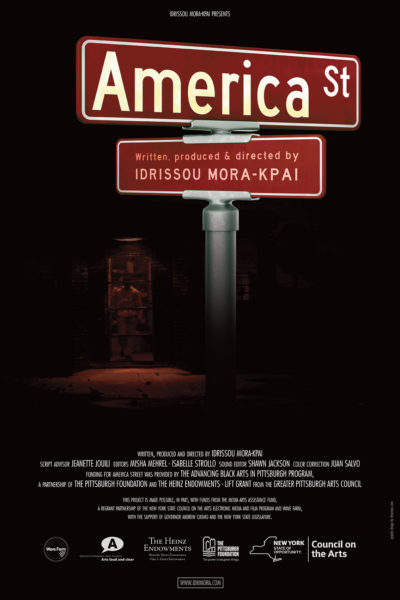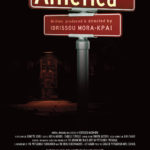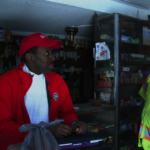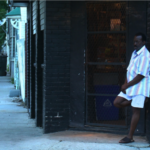CURRENT PROJECT
America Street

❱ Like sheets of hymnal music, America Street unfolds with a mournful whisper. Each image folds into another to form a tapestry of Charleston, South Carolina’s racialized psychic detritus. Through the experiences, memories, and dreams of Joe Watson, a black corner store owner, this visual elegy strips away layer after layer of the city’s history to reveal black displacement, cultural erasure, rage, foreboding, and the unshaken resilience of the slowly disappearing East Side neighborhood. This is the cry of black bodies battling gentrification, segregation, and racial suppression. America Street burns like a lit fuse, weaving its way in and around Charleston until it explodes into a prayer by Pastor and State Senator Clementa C. Pinckney, one of the nine black lives extinguished by a white supremacist at the Emanuel AME Church on June 17, 2015. America Street is an elegiac tone poem about broken dreams, disrupted lives, love of community and voices bearing witness to collective identity.
Reece Auguiste, University of Colorado, Boulder
❱ It is a film for this moment, as it explores the troubled history, and continuing racial inequities, in Charleston, South Carolina, set against the backdrop of the police killing of Walter Scott.
Joe Watson, a neighborhood store owner, who has spent a lifetime committed to protecting and improving his community, provides the focus for exploring larger issues of racial politics, in the South, and the entire United States. He is a magnetic cinematic presence, who speaks hard truths that need to be heard.
Thomas Shevory, Ithaca College
❱ America Street exposes many of the factors that contribute to racism in America by exploring its existence in a single location. Idrissou Mora-Kpai exhibits an amazing rapport with community members, and the film introduces viewers to a cross-section of Charleston’s African American population with a local small business owner and community activist as guide.
However, the film’s scope extends beyond the portrait of an individual to examine the ways in which institutional structures like the police, real estate developers, and heritage/tourism promoters operate to undermine churches, schools, cultural institutions, and social service centers. Thus, the film focuses on the deep roots of racist violence in America, while also focusing on the resilience of its residents and the power of activists to agitate for change.
Gina Marchetti, University of Hong Kong
- STORY
On America Street in Charleston’s East Side neighborhood, Joe is the owner of a small corner store, the heart of an old but slowly disappearing black community. Almost half of all African-Americans trace their origins back to Charleston, a city that is still haunted by its slave owning past. In the face of the multiple challenges that African Americans face, Joe is determined to stay hopeful and to resist losing his neighborhood to the rising forces of gentrification.
My film captures three months during 2015 of Joe’s daily struggles set against the backdrop of racist violence in the city, from the killing of Walter Scott by a police officer to the Emanuel Church massacre by a young white supremacist.
I was inspired to make the film when I moved to South Carolina in 2013. I am a West African immigrant and I was, and still am, trying to navigate a country that feels, in many ways, increasingly unwelcoming towards black bodies.
Through the character of Joe, my film examines how African Americans feel marginalized in a once predominantly black city like Charleston and how white supremacy is becoming more pervasive and insidious in America.
- IMAGE GALLERY
- Watch the film





